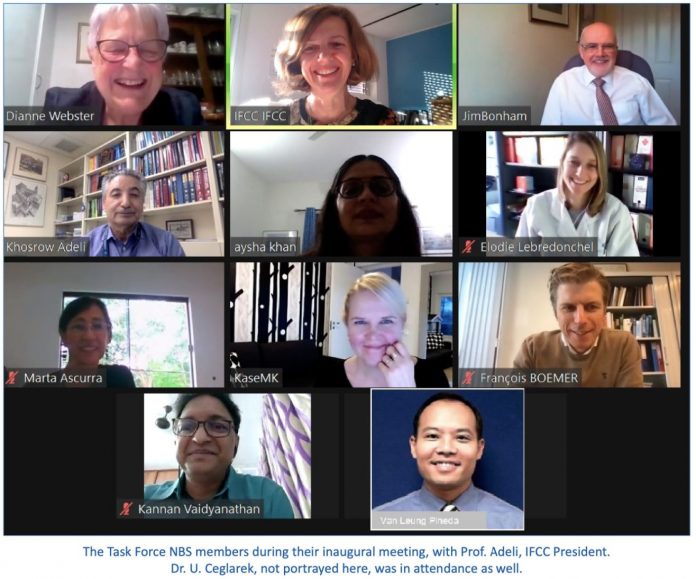by Dr. Van Leung-Pineda
- IFCC Task Force on Global Newborn Screening Co-Chair
- Department of Pathology and Laboratory
- Children’s Healthcare of Atlanta, US
Prof. James R. BONHAM
- IFCC Task Force on Global Newborn Screening Co-Chair
- International Society of Neonatal Screening (ISNS)
- National Newborn Screening Laboratory Lead United Kingdom, UK
The newly formed Task Force on Global Newborn Screening (TF-NBS) held its inaugural meeting this January. This group is tasked with initiating and advancing NBS programs in developing countries in collaboration with multiple worldwide organizations.
Newborn screening is one of the great successes in public health, providing actionable information that can result in the timely treatment of metabolic diseases before they can cause irreparable damage to affected children.
This has resulted in many benefits, for society as a whole significantly reducing the healthcare costs and most importantly saving lives for some and allowing many more to lead healthy and fulfilling lives contributing back to society. For example, data from 2013
showed that annual care for phenylketonuria (PKU) patients that are treated too late costs $1-2 billion dollars.
In contrast, the costs required for screening and treatment are only about $342 million dollars. Newborn screening for another condition, congenital hypothyroidism, can save an estimated $400 million dollars annually. This means that if all PKU and congenital
hypothyrodism patients could be detected and treated early, there could be a $1-2 billion dollars saved per year just from those 2 conditions. Despite this, many children in the world are not screened for these conditions, leading to a poor quality of life for them and
often their families.
The Global Task Force on Newborn Screening, TF-NBS, is composed of individuals from all corners of the world, united by a passion and desire to make NBS screening available for every child. The TF-NBS mandate is to identify and partner with local authorities and other global organizations to pilot advances in NBS programs in developing countries.
The goal is not just to create or improve NBS programs but to ensure that there is an ethical pathway to ensure sustainability and development.
Read more: https://www.ifcc.org/media/478852/ifccenewsmarch2021.pdf#page=7



















































